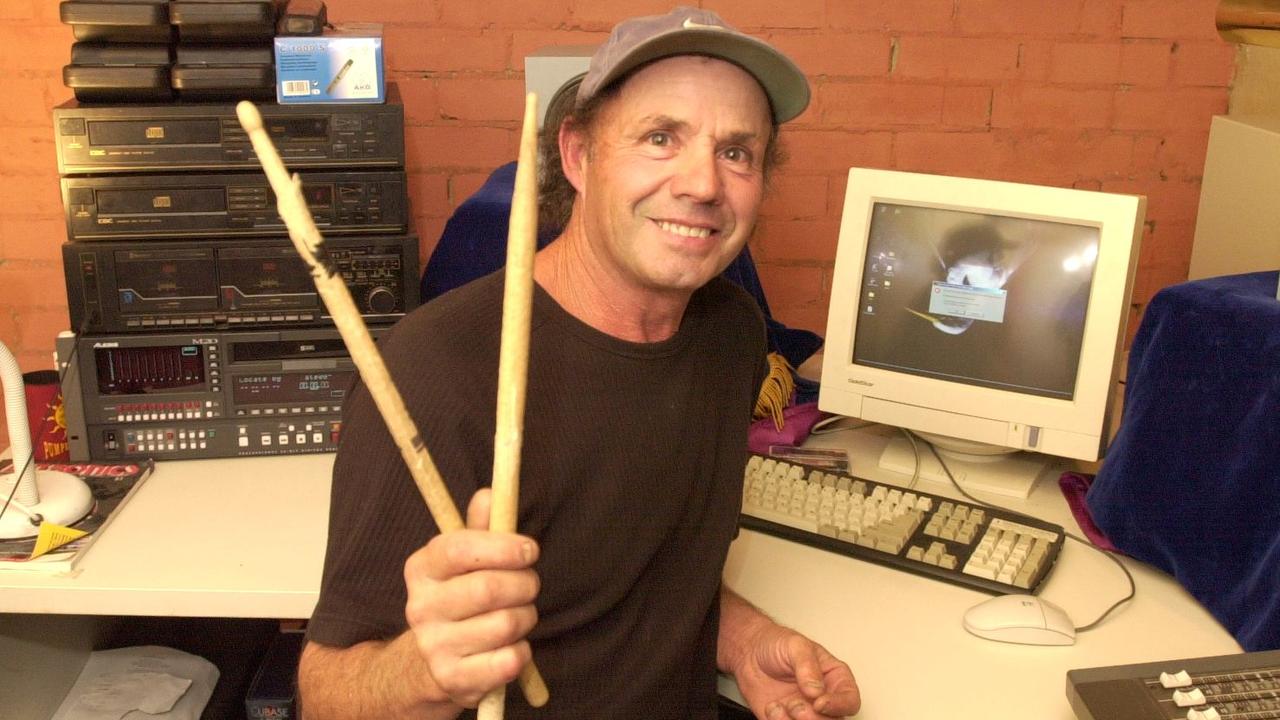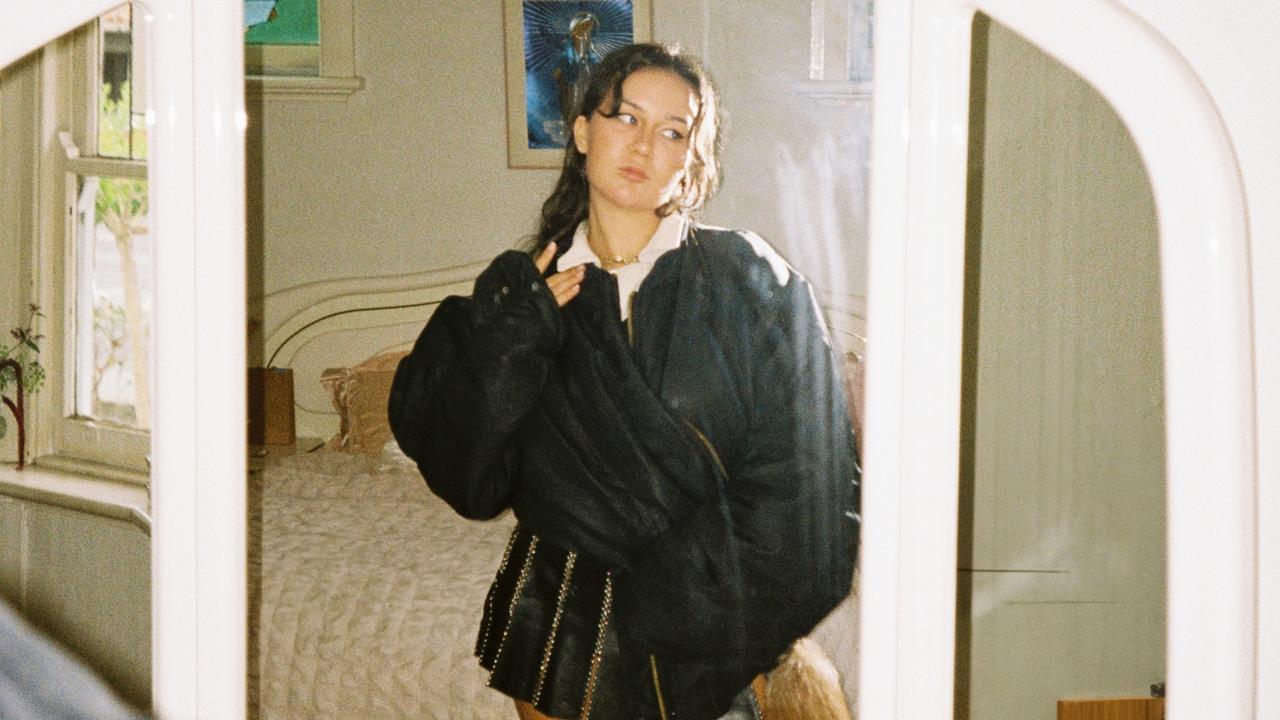Grammys: a cutting edge to artists on song
The Grammys are as much a political forum as event to recognise music’s best.
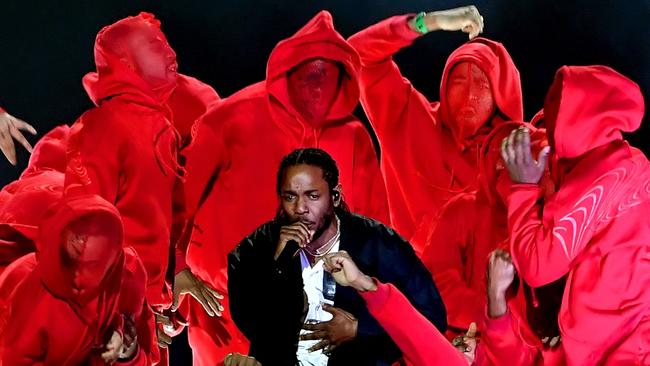
The winds of social change blew through the 60th Grammy Awards yesterday in New York City as musicians relayed messages both subtle and overt. Sexual harassment, divisive politics, suicide prevention and the effects of gun violence were each given their moment in the spotlight as The Recording Academy recognised the musical high achievers of the past year.
For Australians, there was only one moment of national pride, and for many it induced head-scratching: Hillsong Worship won the category of best contemporary Christian music/performance for its song What a Beautiful Name, an international hit little-known among those outside the church.
That aside, local hopefuls including pop singer Sia Furler, Sydney trio Mansionair and rock group Nick Cave and the Bad Seeds each missed out in their categories, as did New Zealand pop singer Lorde. Her second LP, Melodrama,was nominated for album of the year, but lost to R&B singer Bruno Mars, who also took out record and song of the year.
One of the night’s big winners was recently confirmed to be a hit among young Australian listeners, however. Three days ago, Californian hip-hop artist Kendrick Lamar topped the annual Hottest 100 countdown on Triple J with his song Humble. Yesterday brought another round of accolades for the 30-year-old, whose five awards included best rap album, best rap performance and best music video.
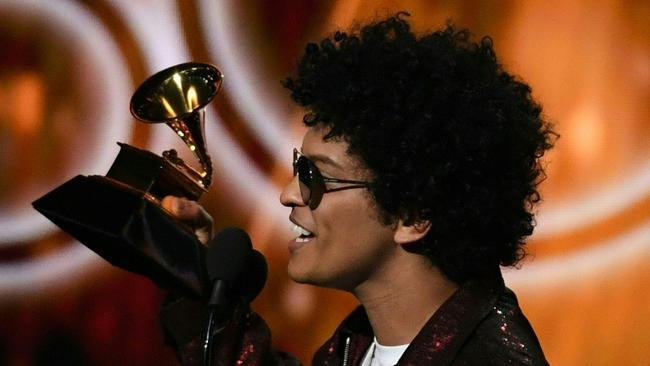
Lamar opened the show by performing several explosive, lyrically dense songs from his 2017 album Damn. He was flanked by dancers dressed in American military uniforms, and briefly joined on stage by Bono and the Edge of Irish rock band U2.
Comedian Dave Chappelle interrupted the six-minute medley by reminding the audience that “the only thing more frightening than watching a black man be honest in America, is being an honest black man in America”.
In accepting the award for best rap album, Lamar said that hip hop is “about expressing yourself and putting that paint on the canvas for the world to evolve for the next generation, and the next”. Lamar’s wins yesterday take his career Grammys tally to 12, and further cement his position atop the genre.
Beforehand, speculation swirled around the question of how members of the American recorded music industry would address the #MeToo social movement over sexual misconduct that has blown through Hollywood since the latter months of 2017.
A grassroots campaign initiated just days before the Grammys urged attendees to wear a white rose as a symbol of “hope, peace, sympathy and resistance”, and several performers displayed the floral motif, including Elton John, rapper Cardi B and best new artist winner Alessia Cara, as well as one of the country musicians who performed Tears in Heaven as a tribute to the Las Vegas shooting victims.
The long shadow of Donald Trump could not be avoided: in a prerecorded skit, musicians including John Legend, Cher and Snoop Dogg gave brief readings from Michael Wolff’s recently published book Fire and Fury: Inside the Trump White House, as did Hillary Clinton, who read aloud: “One reason why he liked to eat at McDonald’s: nobody knew he was coming and the food was safely pre-made.”
What’s that got to do with music? Good question.
Elsewhere, recipients of the lifetime achievement awards included Neil Diamond, who last week announced his retirement from touring due to a diagnosis of Parkinson’s disease, while a performance by Maryland-born rapper Logic drew attention to the phone number for the national suicide prevention lifeline. The rapper then reframed a word that was recently directed from the US President toward African nations. “To all the beautiful countries filled with culture, diversity and thousands of years of history: you are not a shithole,” said Logic. “You are beautiful.”
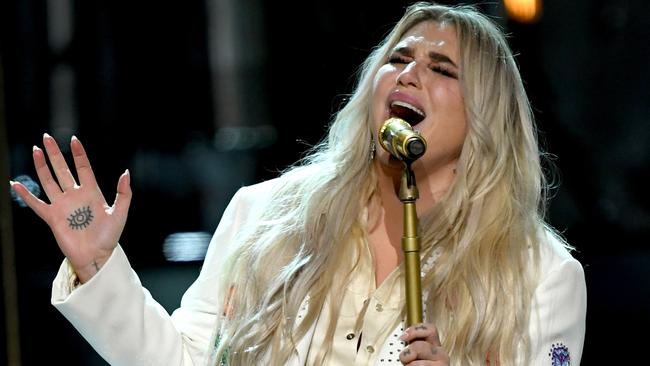
The most powerful performance of the night belonged to pop singer Kesha, whose airing of the ballad Praying saw her flanked by women dressed in white, and ended with the singer in tears while being embraced by her peers.
To date, Kesha has been one of very few pop artists to publicly fight against sexual assault: in a 2014 lawsuit, she accused her long-time producer of inflicting years of abuse. This story has been closely followed by the international music industry, and perhaps this emotional appearance — Kesha is scheduled to tour Australia in March as part of Bluesfest — will encourage others to come forward with their stories.
The appetite for social change certainly appears to be growing. Before Kesha’s performance, R&B singer Janelle Monae spoke on behalf of the women who work in the music industry.
“We come in peace, but we mean business,” Monae said. “And to those who would dare try to silence us, we offer you two words: time’s up. We say time’s up for pay inequality, time’s up for discrimination, time’s up for harassment of any kind, and time’s up for the abuse of power. It’s not just going on in Hollywood, it’s not just going on in Washington; it’s right here in our industry as well.”
To many in the room, as well as music fans watching around the world, it sounded like something substantial was blowing in the wind.


